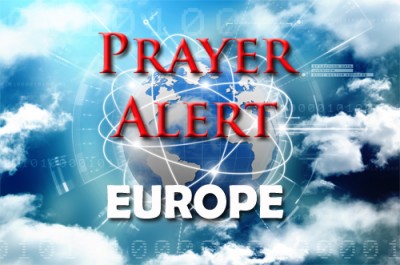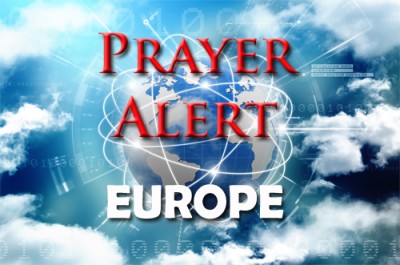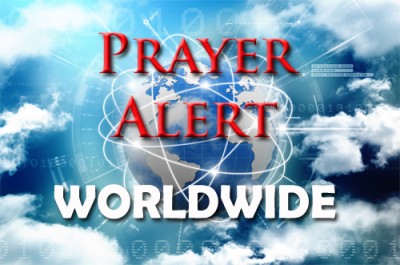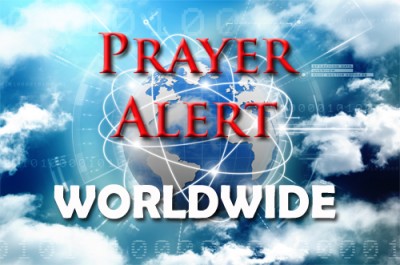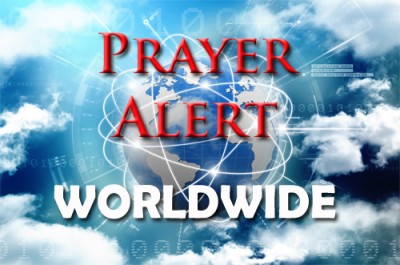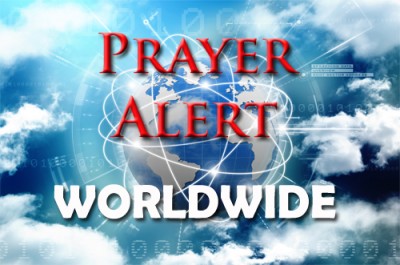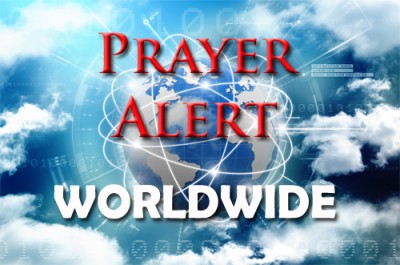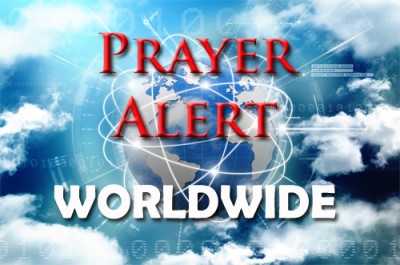Arctic Resilience Forum
30 Aug 2018Last week it was reported that the Arctic Sea is breaking up for the first time on record, and we prayed for nations to acknowledge climate change and seek ways to turn it around. The acceleration of climate change has greater impact on the Arctic region than elsewhere, posing serious threats to the sensitive environment and those who depend on it. Good cooperation is needed between researchers, public authorities, companies, and Arctic inhabitants. Pray for the adoption of a new kind of climate-resilient thinking. Further development is needed in flood warning systems and dam safety. In response to these needs, and as part of its 2017-2019 chairmanship of the Arctic Council, Finland will be hosting the first Arctic Resilience Forum on 10-11 September 2018.
Ireland: Pope begs forgiveness for sex abuse
30 Aug 2018Pope Francis visited Ireland on 25 and 26 August and begged forgiveness for clerical child sex abuse. He said no-one could fail to be moved by stories of those who ‘suffered abuse, were robbed of their innocence, and left scarred by painful memories’. In a speech at Dublin Castle, the Pope expressed his shame at the Catholic Church's failure to address adequately the ‘repellent crimes’ of sex abuse by clergy. He later met eight survivors of sexual abuse, telling them that he viewed clerical sex abuse as ‘filth’. Since the last Papal visit Ireland has ‘modernised’ laws on abortion, contraception, divorce and same-sex marriage. Pray for the church to move on, even stronger, now that past sins are repented of.
Mauritania: national assembly election
30 Aug 2018On 1 September, the North African desert country Mauritania will have an election for its national assembly. 146 members will be elected for one- or four-year terms. Most of its population is nomadic, but a third of Mauritanians are registered voters. It is one of the world's poorest nations, and one of the most religiously restricted. Sunni Islam and Sharia law have ruled them over a thousand years. The government prohibits conversion to Christianity. Those who do so face the death penalty, and must not enter non-Muslim households. A caste system grants privileges to certain groups. They marginalise darker-skinned Mauritanians or anyone who holds a worldview other than Islam. The Islamic terror group AQIM (Al-Qaeda in the Islamic Maghreb) operates in Mauritania.
Kenya: Freedom Sunday
30 Aug 2018IJM has released a Freedom Sunday promo video to media houses, churches, and the general public in Kenya. We have been asked to pray for a positive reception and widespread engagement from the Kenyan church. This video is unique in bringing together leaders from a variety of Christian denominations (including Catholic, Anglican and evangelical) to speak with one voice about the role of the church in addressing police abuse in Kenya. Pray that many churches will participate in Freedom Sunday, and that members will be moved to help vulnerable families in their communities who have suffered from police abuse. Pray for an unprecedented number of churches to dedicate Sunday 23 September to ending slavery and helping to rescue every child, woman and man living in slavery.
Kenya: Theresa May visit
30 Aug 2018At the time of writing Theresa May is visiting Kenya. There is a desire for both countries to develop trust and trade in the future. On her visit the PM was joined by several ministers and 29 business representatives from various industries. We can pray that her visit will initiate and bolster improved post-Brexit trade and cultural ties between the nations. Many believe that in the past Britain has not treated Kenya with equality, but rather as a bully, while the Chinese have humbly generated business: statistics show that China has dwarfed UK imports to Kenya over the last three decades. Pray for the West to rethink foreign policy. One of the Kenya-UK partnership agreements was a commitment to improve lives of people living with disability.
Syria: Idlib, the final battle
30 Aug 2018Syria is preparing to take back the last stronghold, Idlib, and Russia is warning of a terrorist chemical attack. American warships, cruise missile delivery systems, strategic bombers and other hardware arrived in the Mediterranean and the Persian Gulf on 27/28 August, and NATO has called for restraint (see ) If violence escalates in Idlib, the two million people in the area will be in grave danger. Militants seem reluctant to lay down their arms, which makes the coming days crucial for the fate of Idlib and all Syria. A Russian press release (see) stated, ‘A military strike against terrorists occupying Idlib will inevitably happen, and Moscow and Ankara see eye to eye here.’ However, Turkey has twelve military outposts in Idlib governorate under an agreement with Russia and Iran for ‘de-escalation zones’, and there are intense diplomatic talks between Ankara and Moscow to prevent a Russian-backed Syrian army invasion. See
Iran: campaigns for Christians
30 Aug 2018Amnesty International has called for the release of four Iranians sentenced to a combined total of 45 years in prison. Its report calls for urgent action from the Iranian government to quash the convictions and sentences of Victor Bet-Tamraz, Shamiram Isavi, Amin Afshar-Naderi, and Hadi Asgari, ‘as they have been targeted solely for the peaceful exercise of their rights to freedoms of religion and belief, expression, and association, through their Christian faith’. They are currently free on bail, awaiting the outcome of their appeals. Also dual-nationality UK/Iranian charity worker Nazanin Zaghari-Ratcliffe is serving a five-year jail sentence after being accused of spying. Her British husband has been campaigning for her release, and the UK’s foreign secretary has also attempted to secure her freedom. She is currently in hospital, after suffering panic attacks following three days of freedom from jail.
Myanmar: human rights crisis
30 Aug 2018Oscar-winning actor Cate Blanchett described to the UN security council meeting in New York 'gut-wrenching' accounts from Myanmar of Rohingya people being tortured, raped and killed in front of their relatives. 'How can any mother endure seeing her child thrown into a fire?' she said. The UNHCR goodwill ambassador also praised Bangladesh for taking in more than 700,000 refugees, calling it 'one of the most visible and significant gestures of humanity of our time'. UN secretary general António Guterres has called for those behind the Rohingya crisis to be held accountable, urging the council to act on what has become 'one of the world’s worst humanitarian and human rights crises'. However Aung San Suu Kyi probably won't be stripped of her Nobel peace prize, despite revelations around the Rohingya crisis. The UN report said that Myanmar’s military carried out mass killings of Muslim Rohingya. See
